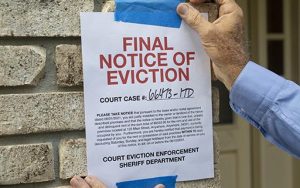PUMP IT UP! Johnny Boy is In Da House: Manhattan Party Boy Moved Into Senior Apartment Building On East 73rd Street

Manhattan party boy John Carley Jr. had an awesome setup. He occupied a one-bedroom apartment in the James Lenox House on a leafy stretch of East 73rd Street.
The building was also ideal because it was a three-minute walk to Central Park. Although the apartment weas cramped, it made for a great party space for him, his DJ equipment and his friends. So, Carley turned it into a micro version of Studio 54.
On top of it, his rent in 2021 was only $1,494 a month. However, there was only one problem. The James Lenox House was a 55 and over building and Carley was not a senior. Thus, his elderly neighbors were not amused about having an amateur Sir Mix-A-Lot blasting 2 Live Crew music in the building.
Which is part of the reason the organization that runs the building is now suing him. The organization has also named his 82 year-old mother for at least $2 million.
James Lenox House at 49 East 73rd street has been described as an “oasis” for moderate-income seniors. The building operated by the James Lenox House Association. The building is a no-frills, 12-story brick structure that has 99 units in a mix of studios and one-bedrooms.
James Lenox House Association is a nonprofit that got its start providing housing for widows after the Civil War. For the past half-century, it’s been renting apartments to people who meet its age and income requirements. The non-profit requires seniors to have a maximum income of just over $125,000 for a couple who want a one-bedroom.
So How Did Manhattan Party Boy John Carley Jr. Get The Apartment?
James Lenox House Association filed a lawsuit against Carley and in New York State Supreme Court on May 14. In the lawsuit, they allege that Carney’s parents, Catherine and John Sr., applied for a unit. They were 78 and 84 at the time. The couple claimed to have a combined income of $89,434. Thus, the couple was offered a lease starting on May 1, 2018 with a monthly rent of $1,396.72.
Except, the complaint states that the two never moved in. It claims Catherine Carley signed the lease with no intent to move in. She instead intended that her son, John Jr., occupy the Apartment.
86-year old neighbor Rosemarie Aldin has lived on the third floor for more than a decade. She says she never really saw Catherine in the building:
“She came once, I think, and joined the tenants’ association. Or pretended to.”
Aldin also told Curbed that she frequently saw John Jr. in the building. She stated that he was very noisy and smelled of full of beer and pot. She also stated that he threw loud and boisterous parties in his “parents’ apartment.”
Sha also claims he frequently engaged in lewd and offensive behavior in common areas:
Carley denied the allegations about his partying and inappropriate behavior. He also claimed he only stayed at the apartment on occasion. In addition, he also claims his mother was very unhappy at the James Lenox House.
Lawsuit Claims Manhattan Party Boy And His Parents Stopped Paying Rent
 The lawsuit also alleges the Carleys also stopped paying rent after May 2021. As a result, the nonprofit began eviction proceedings in August 2021. John Jr. vacated the unit three years later after the case was settled.
The lawsuit also alleges the Carleys also stopped paying rent after May 2021. As a result, the nonprofit began eviction proceedings in August 2021. John Jr. vacated the unit three years later after the case was settled.
The latest legal action stems from the aftermath of the eviction. The Carneys allegedly haven’t paid the $77,092 in back rent for the duration of the eviction case. Additionally, the James Lenox House Association also is seeking to recoup legal fees and damages. Carley told Curbed that his family stopped sending rent checks because the building stopped cashing them.
This kind of fanfare seems unusual for the building. Residents describe the building as being pretty tranquil and quite the housing deal.
The program also has a significant wait list. In addition, rents that are just a little over a third of the neighborhood median for a one-bedroom. The building’s nonprofit also doesn’t seem especially litigious, either.
In 2016, James Lenox House Association Director Nancy Rabstejnek Nichols told The Wall Street Journal that there was an endowment to cover any potential rent shortfall from a tenant. She told the WSJ, “We never throw anybody out,”



